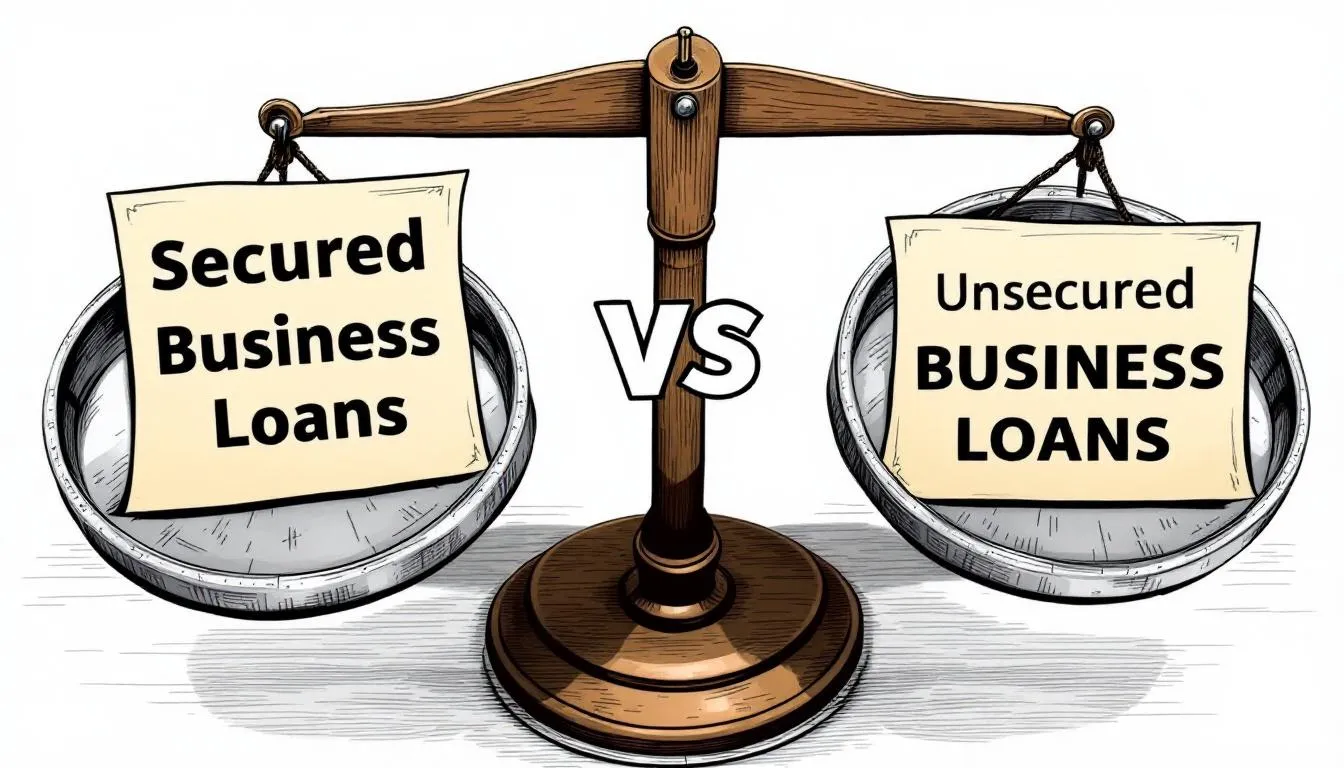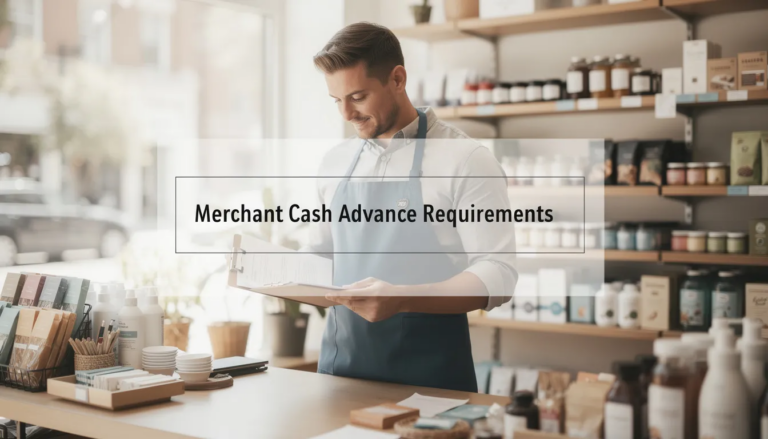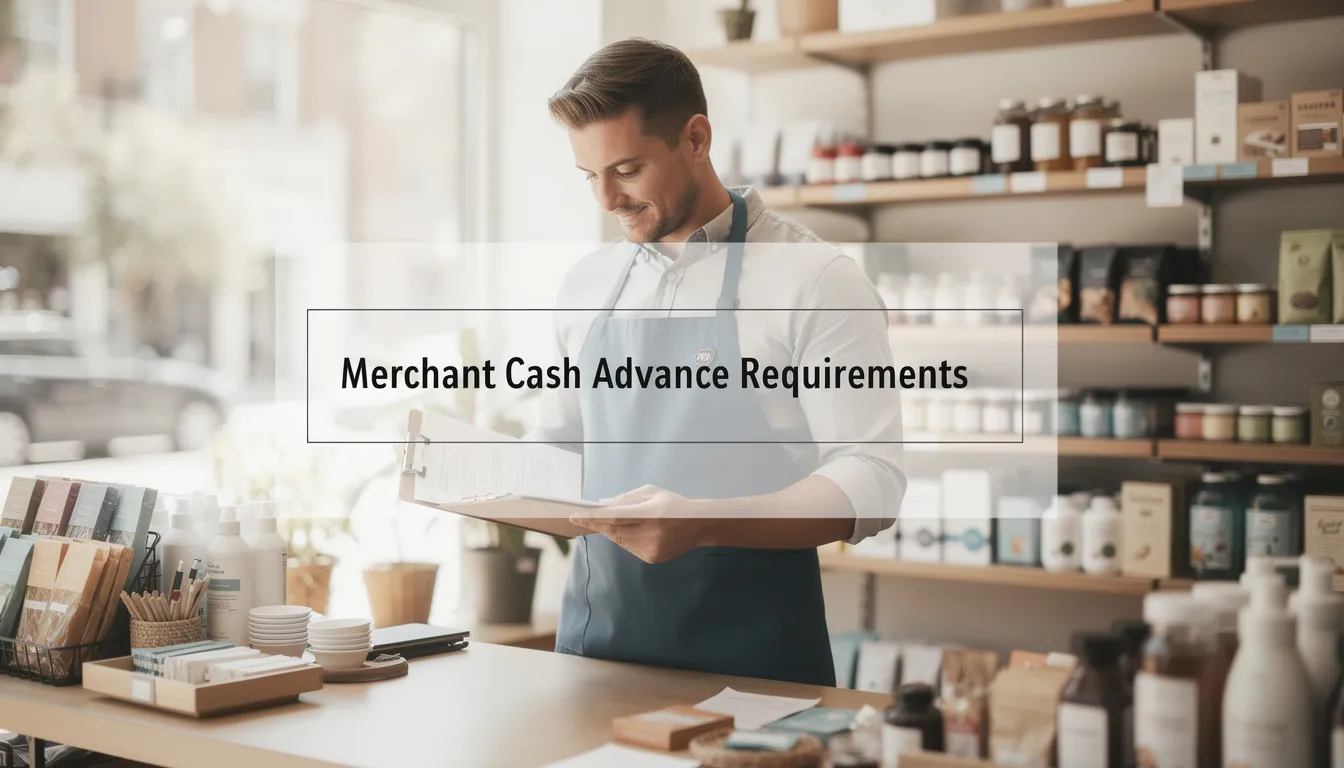What are Secured Business Loans?
Secured business loans are a common form of financing that requires the borrower to pledge business or personal assets as collateral. This gives the lender a way to recover losses if the borrower defaults.
Secured loans require the borrower to provide collateral, such as business equipment or real estate. If the borrower defaults on a secured loan, the lender can seize the collateral as repayment.
This type of loan often allows borrowers to qualify for larger loan amounts, longer repayment terms, and lower interest rates because the lender’s risk is reduced. Secured loans are also a component of asset-based lending, where funding is directly tied to the value of business assets.
Examples of secured business loans include:
- Secured Business Term Loans: Business term loans provide a lump sum with fixed repayment terms, backed by business assets.
- Commercial Real Estate Loans: Commercial real estate loans allow small business owners to purchase or refinance commercial property, using the property itself as collateral.
- Asset-Backed Business Line of Credit: This type of business line of credit offers revolving access to funds secured by accounts receivable or inventory.
- Equipment Financing: Small businesses use equipment financing to purchase machinery or tools, with the equipment serving as collateral.
Types of Collateral for Secured Business Loans
Financial institutions accept various forms of business assets as collateral for secured business loans. Examples include:
- Commercial real estate
- Business-owned vehicles
- Equipment and machinery
- Inventory
- Accounts receivable (outstanding invoices)
- Certificates of deposit (CDs)
- Cash savings or business bank accounts
- Fixtures and furniture
- Intellectual property (e.g., patents, trademarks, copyrights)
- Securities and investment accounts
- Commercial lease agreements
- Contracts and purchase orders
- Warehouse receipts
- Agricultural assets (livestock, crops)
- Raw materials or supplies
What are Unsecured Business Loans?
Unsecured business loans are financing options that do not require borrowers to pledge specific collateral. Instead, lenders evaluate the borrower’s creditworthiness, business performance, and overall financial health. Unsecured financing is often associated with cash flow financing, where lenders rely on the business’s revenue and financial history rather than assets.
Unsecured business loans do not require collateral but typically involve a personal guarantee. A personal guarantee for an unsecured loan allows the lender to pursue personal assets if payments are missed. This means that while your business property may not be directly at risk, your personal assets could still be affected if you default.
Examples of unsecured business loans include:
- Unsecured Business Line of Credit: Most business lines of credit are unsecured financing options that provide revolving access to capital with no collateral requirement.
- Working Capital Loans: Working capital loans provide short-term financing for managing cash flow and operational needs.
- Short-Term Loans: Short-term business loans are typically unsecured. These loans provide fast funding solutions for immediate expenses or emergencies.
- Merchant Cash Advances: A merchant cash advance is a business transaction that provides a lump sum repaid through a percentage of daily credit card sales and doesn’t require collateral.
- Business Credit Cards: Many business card options come as unsecured credit lines. However, there are also secured business cards, which require a cash deposit as collateral.
How are Secured and Unsecured Business Loans Different?
Secured and unsecured business loans differ in several important ways, including collateral requirements, qualification criteria, and risk to the borrower. Both secured loans and unsecured loans can help business owners obtain working capital or long-term financing.
Note: Personal loans for business can be either secured or unsecured.
Here’s a side-by-side comparison:
| Feature | Secured Business Loans | Unsecured Business Loans |
|---|---|---|
| Collateral Required | Yes (e.g., property, equipment) | No (usually requires a personal guarantee) |
| Risk to Borrower | Loss of pledged business/personal assets | Risk to personal assets via guarantee |
| Qualification Criteria | May allow a lower credit score if asset-backed | Typically requires strong credit & cash flow |
| Funding Time | Slower (valuation of collateral required) | Faster (no asset review) |
| Loan Amounts | Higher amounts are often available | Lower borrowing limits |
| Interest Rates | Lower due to reduced lender risk | Higher due to increased lender risk |
Is it Easier to qualify for secured or Unsecured Business Loans?
Understanding the eligibility requirements is essential when deciding between a secured and an unsecured loan. Lenders will typically look at your personal credit score, time in business, and annual revenue.
Qualification for secured loans can be easier if the borrower has valuable collateral, even with less-than-perfect credit. Unsecured loans tend to have stricter qualification requirements based primarily on credit history.
For example, a secured small business loan may be more accessible to a company with a poor credit history if it has valuable assets to pledge. However, you’ll usually need to provide additional financial statements, such as a balance sheet, when applying. The approval process can take longer due to verifying and appraising collateral.
On the other hand, unsecured small business loans typically require a strong credit profile, solid business history, and sufficient cash flow to prove repayment ability. If you’re qualified, the application and approval process is often more streamlined, though.
What are the Benefits and Drawbacks of Secured Business Loans?
Secured loans offer key advantages such as higher borrowing limits, more attractive interest rates, and longer repayment terms. These benefits make them ideal for significant investments like purchasing real estate or funding major expansions.
However, the main drawback is that you must pledge business or personal assets, such as business property, equipment, or accounts receivable. In addition, secured loans may take longer to fund due to the collateral valuation process.
Secured Business Loan Pros & Cons
Pros:
- ✅ Larger loan amounts available
- ✅ More attractive interest rates
- ✅ Longer loan terms
Cons:
- ❌ Require collateral
- ❌ Risk of losing business assets
- ❌ Slower approval and funding process
What are the Benefits and Drawbacks of Unsecured Business Loans?
The most significant advantage of unsecured loans is speed and convenience. Unsecured loans may provide quicker access to funds as they do not require collateral valuation.
However, personal guarantees are commonly required for unsecured loans to cover the lender’s risk, and the interest rates are usually higher. Because they are high-risk loans, lenders must compensate with stricter qualifications and higher costs.
Unsecured Business Loan Pros & Cons
Pros:
- ✅ No need to pledge business or personal property
- ✅ Faster application and funding
- ✅ Ideal for businesses with strong credit
Cons:
- ❌ Higher interest rates
- ❌ Requires personal guarantee
- ❌ Lower borrowing limits
How do I apply for a Secured or Unsecured Business Loan?
Follow these steps to apply for a small business loan (secured or unsecured).
Step 1: Consider Your Needs
Before you begin the application process, take some time to make sure this is the right product for your individual needs. Will you be able to use the capital for your desired expansion goals? Do you know exactly how much funding to request?
Answering these questions ahead of time will make the rest of this process much smoother.
Step 2: Gather Your Documents
Documentation requirements vary depending on the loan you’re requesting. For example, invoice financing will require your A/R and A/P aging reports. A merchant cash advance requires bank statements showing card payments.
Regardless of the loan, expect to provide these basic documents during the application:
- Driver’s license
- Voided business check
- Bank statements from the past three months
- Financial statements
- SBA loans require additional details, such as a business plan
Step 3: Fill Out the Application
You can begin the application process by calling us or filling out our one-page online application. Either way, you’ll be asked to supply the information from the previous section along with your desired loan amount.
Step 4: Speak to a Representative
Once you apply, a representative will reach out to you to explain the repayment terms, interest rates, and terms you qualify for. This will ensure that there are no surprises or hidden fees during repayment.
Step 5: Receive Approval
If approved, funds should appear in your bank account in 1-10 business days, depending on your loan type.
Frequently Asked Questions
Here are the most common questions about secured and unsecured business loans.
Is a Secured or Unsecured Business Loan Less Expensive?
Unsecured loans generally have higher interest rates due to the increased risk to the lender.
A secured business loan is usually more cost-effective over time if you have collateral to secure the loan. In contrast, unsecured business loans offer speed and flexibility but at a higher cost, making them better suited for short-term needs.
Is a Secured or Unsecured Business Loan Better for Bad Credit?
For business owners with poor credit history, a secured loan is usually easier to obtain. Lenders are more likely to approve bad credit business loans if you can offer a valuable asset like equipment or real estate.
In contrast, unsecured business loans usually require a perfect credit score or strong financials. Many small business owners with low credit scores may find it challenging to qualify without collateral.
Are SBA Loans Secured or Unsecured?
SBA loans can be either secured or unsecured, depending on the loan program and amount. Understanding how SBA loans function within the secured vs unsecured framework is key when exploring your business loan options with the SBA.
For smaller SBA loan amounts—typically under $25,000—lenders may not require collateral. However, for loans over $350,000, the SBA mandates that lenders collateralize the loan to the maximum extent possible. This means lenders must use all available business assets and may require personal property if business collateral falls short.
The level of security required often depends on the borrower’s creditworthiness, the business’s financial profile, and the total loan amount. In some cases, SBA lenders may approve partially secured loans where only a portion of the loan is backed by collateral.
How do I Determine if a Secured or Unsecured Business Loan is Better for My Business?
When choosing between secured and unsecured loans, consider the borrower’s needs and available assets.
For example, suppose your business has business assets like commercial real estate or vehicles, and you’re looking for larger funding with lower interest rates. In that case, a secured loan may be a better fit. Conversely, if you need fast capital to cover payroll, inventory, or marketing, and have a strong credit profile, an unsecured loan may be the better choice.
Startups, service-based businesses, or companies with limited assets may benefit more from unsecured options. Established companies with a strong business credit profile and physical assets may qualify for secured financing with more competitive interest rates and favorable loan terms.
Secured Business Loans vs. Unsecured Business Loans – Final Thoughts
Understanding the differences between secured and unsecured business loans is essential for making an informed financial decision. Each loan type has its strengths and weaknesses, and the right option depends on your credit history, financial needs, business structure, and available collateral.
While secured loans provide lower rates and higher limits, they come with the risk of losing pledged assets. On the other hand, unsecured loans are faster and more convenient, but may cost more and require a strong credit background.
Many small business owners work with online lenders, banks, or financial advisors to find the best business loan options. Whether you’re applying for a construction loan, auto loan, home equity line, or any other form of small business loan, understanding how secured vs unsecured loans work can help you grow your business with confidence.
Contact us if you have more questions about secured or unsecured business loans. Our alternative funding experts can help you find the most advantageous loan for your needs.












